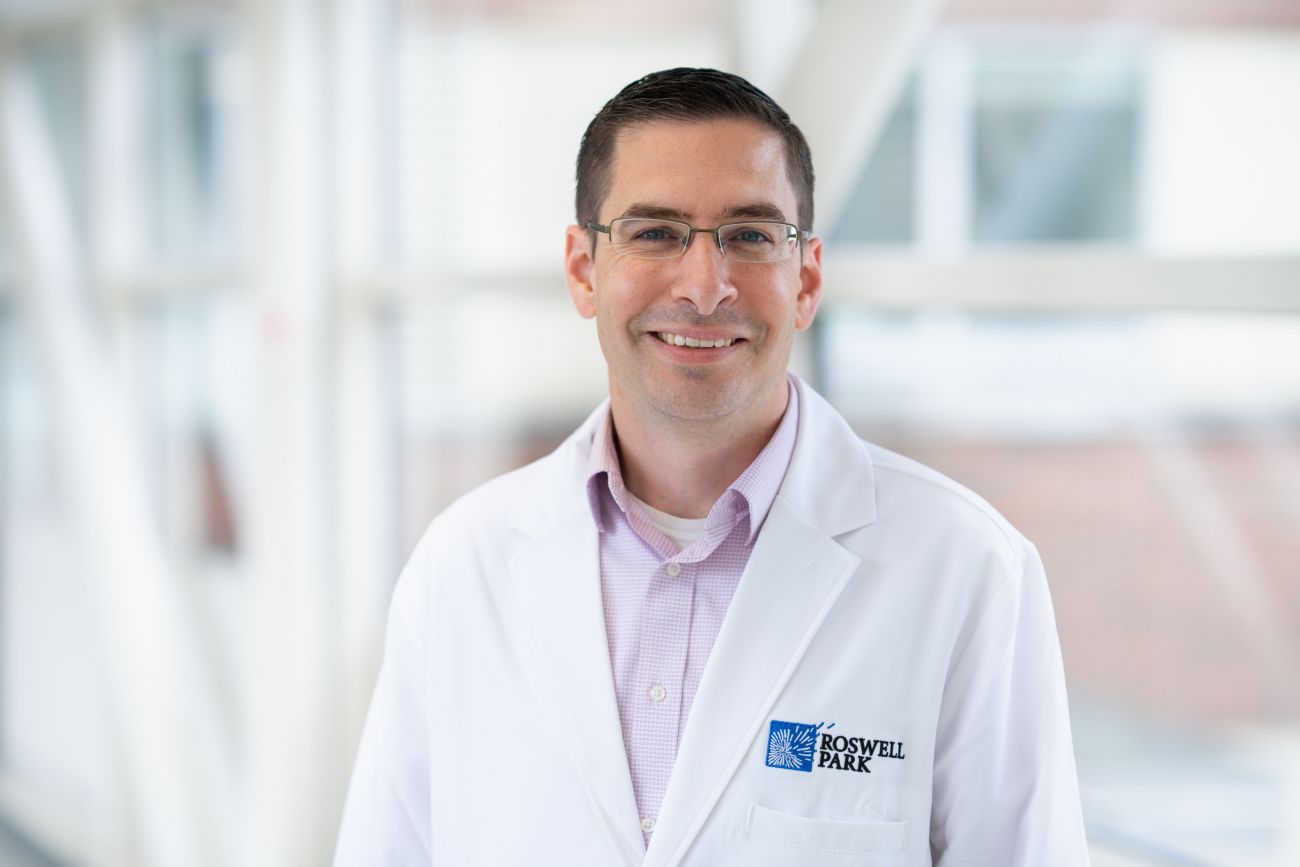New work from Roswell Park may pave way to more effective pairing of immunotherapy and radiation
- Radiation causes key changes to immune cells in kidney cancer tumors
- T cells in tumors are expanded in blood shortly after radiation, then decrease
- Study shows timing of treatments may improve success of cancer immunotherapy
BUFFALO, N.Y. — It’s clear that radiation therapy, or radiotherapy, an approach used to treat cancer since the early 20th century, can be an effective companion to newer, immune-stimulating approaches known as immunotherapy. Research from a team from Roswell Park Comprehensive Cancer Center explains how radiation helps boost the immune system’s ability to fight cancer in combination with immune checkpoint inhibitors — and provides new evidence that the timing of these therapies can make a big difference in how effectively they work together.
While more than 100 clinical trials currently underway are exploring the combination of radiation with immunotherapy, little is known regarding radiation’s impact within the tumor microenvironment. Looking to fill that void, the researchers, led by Jason Muhitch, PhD, Jacky Chow, PhD, and Anurag Singh, MD, focused their study on renal cell carcinoma (RCC), a form of kidney cancer that, until a few years ago, was thought to be radiation-resistant.
In new research published today in PNAS, the Proceedings of the National Academy of Sciences of the United States of America, they show for the first time that radiation remodels T cell responses found within patient tumors.
Based on results of high-throughput sequencing of samples from patients with RCC, the researchers found that stereotactic body radiation therapy, or SBRT, led to expansion of peripheral blood T cell clones that were also found within patient tumors — the first report of this dynamic in any cancer type.
“Interestingly, this expansion was short-lived, and we saw contraction or reduction of these T cell clones when we evaluated peripheral blood four weeks after treatment,” notes Dr. Muhitch, Assistant Professor of Oncology in the Departments of Urology and Immunology and the paper’s senior author. “That suggests that we have a window shortly after radiation treatment to improve patient outcomes using combination strategies with immunotherapy.”
The work reveals new dynamics of human immune responses, with two important implications: (1) single-dose radiation is an effective immune-sensitizing agent for patients with RCC, and (2) timing is a critical factor for combination strategies that rely on endogenous T cell responses, or activation of immune cells within organs.
“Our findings help explain how a conventional cancer treatment can bolster immune responses in kidney cancer patients,” says Dr. Muhitch, “and may point the way to better treatment outcomes for more patients — not just in kidney cancer, but for other cancer types too.”
The work involved a multidisciplinary team from the Roswell Park departments of Immunology, Urology and Radiation Medicine. Co-authors are Nicholas Hoffend, Scott Abrams, PhD, and Thomas Schwaab, MD, PhD.
The research was supported by grants from the National Center for Advancing Translational Sciences (project number UL1TR001412, to the University at Buffalo Clinical and Translational Science Institute) and National Cancer Institute (project numbers R01CA172105 and P30CA016056). Additional support was provided by the Roswell Park Friends of Urology, Elsa Kreiner Memorial Fund and Fraternal Order of Eagles.
###
Roswell Park Comprehensive Cancer Center is a community united by the drive to eliminate cancer’s grip on humanity by unlocking its secrets through personalized approaches and unleashing the healing power of hope. Founded by Dr. Roswell Park in 1898, it is the only National Cancer Institute-designated comprehensive cancer center in Upstate New York. Learn more at www.roswellpark.org, or contact us at 1-800-ROSWELL (1-800-767-9355) or ASKRoswell@RoswellPark.org.
Annie Deck-Miller, Senior Media Relations Manager
716-845-8593; annie.deck-miller@roswellpark.org
